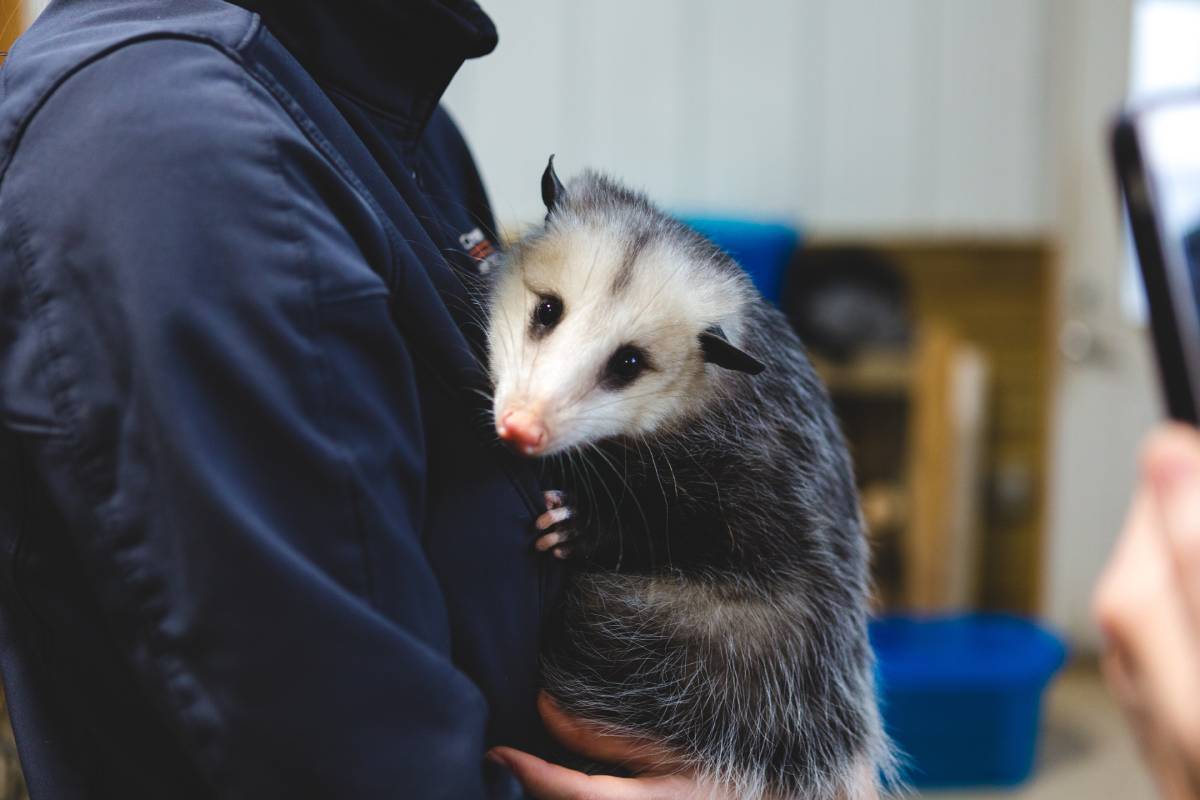
Possums are animals that many people see around their homes. Sometimes, people worry if possums are aggressive or dangerous.
But usually, possums are shy and want to stay away from people. Knowing how possums behave and what to do if you meet one can help you feel safe.
This article will explain if possums are aggressive, how to act if a possum comes near, and whether having possums around is good or bad.
Are Possums Aggressive Toward People?
The Short Answer: Usually No
They are usually not aggressive and prefer to stay away from people and trouble. Most types, like the brushtail in Australia or the Virginia opossum in North America, are shy and like to be alone. They spend their nights quietly looking for food or a place to rest without bothering anyone.
They don’t attack or defend their space aggressively. Instead, they climb, hide, or “play dead” (like Virginia opossums) to stay safe. If they feel scared or trapped, they might hiss, growl, or show their teeth as a warning. This doesn’t mean they want to fight — they just want to avoid problems and stay calm.
When Might Possums Appear Aggressive?
Though rare, possums might seem aggressive when:
- Protecting babies: A mother possum might hiss or lunge if she feels her young are in danger.
- Feeling trapped: If cornered, a possum may make noise or swat as a warning.
- Injured or sick: Like any animal, a hurt or sick possum may act unpredictably.
Even then, possums usually want to escape, not attack. Bites are rare and usually happen only if the animal is handled or provoked. It’s important to respect their space to prevent these situations.
What Happens If a Possum Sees You?
When a possum sees you, it usually reacts based on whether it feels threatened or not. Most possums will try to avoid confrontation by freezing, climbing away, or quietly retreating. They are mostly nocturnal and prefer to stay hidden, so they don’t want to interact with humans.
If a possum feels cornered or surprised, it might hiss, bare its teeth, or make a loud noise to scare you off. This is a defense mechanism, not aggression. In many cases, the possum will try to find a way to escape rather than fight. Knowing this can help reduce fear if you encounter one unexpectedly.
Freezing or Staying Still
One common reaction is to freeze in place. This helps the possum avoid drawing attention to itself and may give it a better chance to assess the situation. By staying still, the possum hopes you will ignore it and move on.
Climbing Away to Safety
Possums are great at climbing. When they feel scared, they quickly climb trees, fences, or anything high to get away. This helps them stay safe. They don’t want to fight. They just want to hide somewhere quiet until the danger is gone.
Making Noise to Scare You
If a possum feels trapped or surprised, it might hiss, show its teeth, or make loud noises. This doesn’t mean it wants to attack you it’s just scared. These sounds are the possum’s way of saying, “Stay away!” Most of the time, it will run off as soon as it sees a chance.
Trying to Run Away
Most possums prefer to run away rather than fight. They don’t want to hurt anyone. Knowing this can help you stay calm if you see one nearby. They are shy and usually avoid people. Just keep your distance and let them move on safely.
What to Do If a Possum Approaches You
If a possum comes near, stay calm and don’t panic. Move away slowly and give it plenty of space so it doesn’t feel cornered or threatened. Avoid sudden moves or loud noises that might scare it.
1. Stay Calm
Possums are not dangerous unless threatened. If one walks toward you, it’s probably curious or just passing by. Don’t panic or make sudden moves, as this may scare it. Staying calm helps the possum feel less threatened and more likely to move away.
2. Give Space
Slowly step back or move to the side so the possum can get by. Possums don’t want to be near people and will leave if they have room. If you block their path, they might get scared and act defensive.
Stay calm and don’t make loud noises. Quick movements can make the possum panic. Just give it space and let it go on its way.
3. Don’t Touch or Feed
Never try to pick up or feed them. They’re wild animals and may bite or scratch if scared. Feeding them can also make them dependent on humans, which is not good for them or you. It’s best to let them find their own natural food sources.
Are Possums Good or Bad to Have Around?
People have mixed feelings about possums, but mostly they are helpful:
- Natural pest controllers: Possums eat insects like cockroaches and spiders, and even small rodents.
- Cleaners: They help clean up fallen fruit and food scraps.
- Low disease risk: Unlike rats, they rarely carry diseases harmful to people.
- Ecological role: They help spread seeds and keep nature balanced.
While possums can sometimes cause minor problems, like rummaging through bins, their benefits usually outweigh these inconveniences. They are an important part of the ecosystem.
Conclusion
Possums are usually not aggressive toward people and rarely cause problems. If you give them space and avoid provoking them, possums can peacefully share the area with you. They help control pests and clean up, making them more good than bad neighbors.
Their presence also supports the local ecosystem by spreading seeds and keeping insect populations balanced. Understanding possums helps us live with them safely and without fear. Learning to respect these creatures benefits both humans and possums alike.


